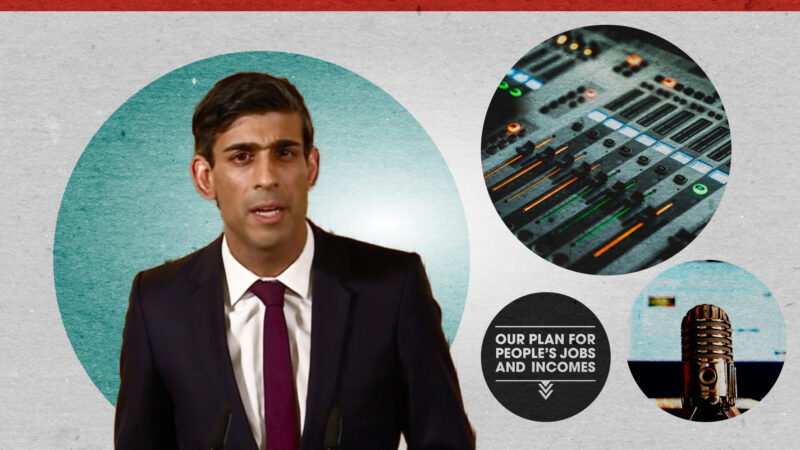
After a reasonably productive Day One of social distancing at home – we went outside, the boy ate at least one vegetable – I settled down to watch the Chancellor’s statement on emergency help for workers. I felt strangely nervous, as I had spent the past week doing my utmost to lobby for more support for parents, for recording studios, and for the self-employed. As a self-employed sound engineer, I’ve watched my bookings diary go up in smoke over the past few weeks, but I have had more than enough to do as a director of my trade body the Music Producers Guild, and as an activist for Parental Pay Equality and Pregnant Then Screwed.
In times of crisis, it is always the vulnerable who feel the brunt of the economic pain and those without a voice who get ignored. Overall, I’m supportive of a lot of what the Chancellor announced on Friday, and can’t deny the enormity of the task he faces just a few weeks into the job. I think I speak for many of us who found the past week waiting for clarity on job protection incredibly stressful. At least for millions of employees (the ones who hadn’t been laid off in the preceding days!), the wait paid off thanks to a new coronavirus job retention scheme, which should see the government fund 80% wage replacement up to £2,500 a month. It feels odd having temporary nationalisation of the private sector imposed by the Tories, but these are strange times, and I’ll take it.
Unfortunately, for the self-employed, the picture is far bleaker. A slight tweak to Universal Credit meant that after weeks of coronavirus-related cancellations, thousands of my colleagues in all parts of the music industry and beyond will get to apply for a measly £400 a month at best and wait five weeks for it to land in their account. I guess that is one way of stopping people from hoarding – just don’t give them any money! Work across the country has dried up in many sectors due to the coronavirus, and doesn’t discriminate between self-employed and employees. If the work is precarious, and cash-flow hand to mouth, then the impact is the same – a sudden, devastating loss of income, and no sign of it returning anytime soon.
Deliveroo drivers have now been rightly elevated to key worker status, so shouldn’t need to worry about keeping their hours up, at least in the short term. However, Uber drivers and zero-hour cleaners have seen their earnings collapse as people begin to stay at home. Music producers and engineers have seen a sharp drop-off in bookings, and face months without work, while still paying rent on studios and equipment. Worst hit is probably the live sector, who have been pressing the delete key on their diaries since the plug was pulled on the SXSW Festival in early March. Live sound engineer Bryony October said: “It’s bleak. I lost 70 days work in one day on Tuesday.” Now I know roadies have a reputation of being able to survive on liquid lunches alone, but I’m pretty sure they can’t live on thin air. And when you account for living costs under UC, that is pretty much all that’s left.
The labour movement’s relationship with self-employment has not always been straight-forward. Some, like my own union, the MU, have always been staunch defenders of the original gig economy, whereas others have concentrated on challenging the exploitative nature of the more tech-led, modern gig economy. In this time of national crisis, I had hoped the entire trade union movement would stand with all workers, regardless of how they filed their tax return, and I’m deeply disappointed that our voices were apparently not heard – or were deemed expendable – in the negotiations between the TUC and the government.
Whether it’s a form of universal basic income for all self-employed people, as has been floated by many Labour MPs, or the Creative Industries Federation model of a capped 80% income replacement based on the past three years of earnings, the self-employed must be given the same chance to survive as their employed colleagues. Otherwise, desperation will force people to disregard public health advice, millions of families will face hardship, and entire industries will be wiped out. The creators whose work we’ll all be enjoying on Netflix and Spotify in the coming months will be forced to shut up shop, sell their instruments and move in with their parents. If it really is “on all of us”, as Rishi Sunak says, why have the self-employed been hung out to dry?




More from LabourList
A gory night for Labour
‘SEND reforms are a crucial test of the opportunity mission’
Delivering in Government: your weekly round up of good news Labour stories